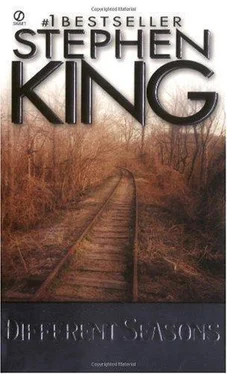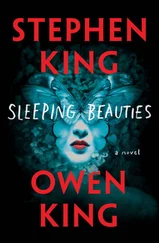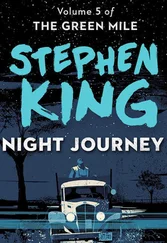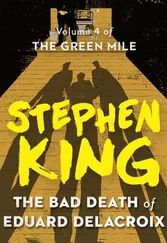Stephen King - Different Seasons
Здесь есть возможность читать онлайн «Stephen King - Different Seasons» весь текст электронной книги совершенно бесплатно (целиком полную версию без сокращений). В некоторых случаях можно слушать аудио, скачать через торрент в формате fb2 и присутствует краткое содержание. Год выпуска: 2004, ISBN: 2004, Издательство: Signet, Жанр: Триллер, на английском языке. Описание произведения, (предисловие) а так же отзывы посетителей доступны на портале библиотеки ЛибКат.
- Название:Different Seasons
- Автор:
- Издательство:Signet
- Жанр:
- Год:2004
- ISBN:978-0451167538
- Рейтинг книги:5 / 5. Голосов: 1
-
Избранное:Добавить в избранное
- Отзывы:
-
Ваша оценка:
- 100
- 1
- 2
- 3
- 4
- 5
Different Seasons: краткое содержание, описание и аннотация
Предлагаем к чтению аннотацию, описание, краткое содержание или предисловие (зависит от того, что написал сам автор книги «Different Seasons»). Если вы не нашли необходимую информацию о книге — напишите в комментариях, мы постараемся отыскать её.
, "Apt Pupil" into Bryan Singer's 1998 film
, and "The Body" into Rob Reiner's
(1986).
The final novella, "Breathing Lessons," is a horror yarn told by a doctor, about a patient whose indomitable spirit keeps her baby alive under extraordinary circumstances. It's the tightest, most polished tale in the collection.
Different Seasons — читать онлайн бесплатно полную книгу (весь текст) целиком
Ниже представлен текст книги, разбитый по страницам. Система сохранения места последней прочитанной страницы, позволяет с удобством читать онлайн бесплатно книгу «Different Seasons», без необходимости каждый раз заново искать на чём Вы остановились. Поставьте закладку, и сможете в любой момент перейти на страницу, на которой закончили чтение.
Интервал:
Закладка:
Well, that was the one I liked better myself- but there was something so oddly reluctant in his voice that I looked at him sharply and asked him what the matter was. 'It's just that if you do a book about vampires as the follow-up to a book about a girl who can move things by mind-power, you're going to get typed,' he said.
'Typed?' I asked, honestly bewildered. I could see no similarities to speak of between vampires and telekinesis. 'As what?’
'As a horror-writer,' he said, more reluctantly still.
'Oh,' I said, vastly relieved. 'Is that all!'
'Give it a few years,' he said, 'and see if you still think it's "all".'
'Bill,' I said, amused, 'no one can make a living writing just horror stories in America. Lovecraft starved in Providence. Bloch gave it up for suspense novels and Unknown-type spoofs. The Exorcist was a one-shot. You'll see.'
The light changed. Bill clapped me on the shoulder. 'I think you're going to be very successful,' he said, 'but I don't think you know shit from Shinola.'
He was closer to the truth than I was. It turned out that it was possible to make a living writing horror stories in America. Second Coming, eventually retitled 'Salem's Lot, did very well. By the time it was published, I was living in Colorado with my family and writing a novel about a haunted hotel. On a trip into New York, I sat up with Bill half the night in a bar called Jasper's of the Rock-Ola; you had to kind of lift him up to see what the selections were, and told him the plot By the end, his elbows were planted on either side of his bourbon and his head was in his hands, like a man with a monster migraine.
'You don't like it,'I said.
'I like it a lot,' he said hollowly.
"Then what's wrong?'
'First the telekinetic girl, then the vampires, now the haunted hotel and the telepathic kid. You're gonna get typed.'
This time I thought about it a little more seriously - and then I thought about all the people who had been typed as horror writers, and who had given me such great pleasure over the years - Lovecraft, Clark Ashton Smith, Frank Belknap Long, Fritz Leiber, Robert Bloch, Richard Matheson, and Shirley Jackson (yes, even she was typed as a spook writer). And I decided there in Jasper's with the cat asleep on the juke and my editor sitting beside me with his head in his hands, that I could be in worse company. I could, for example, be an 'important’ writer like Joseph Heller and publish a novel every seven years or so, or a 'brilliant' writer like John Gardner and write obscure books for bright academics who eat macrobiotic foods and drive old Saabs with faded but still legible GENE MCCARTHY FOR PRESIDENT stickers on the rear bumpers.
'That's okay, Bill,' I said, 'I’ll be a horror writer if that's what people want That's just fine.'
We never had the discussion again. Bill's still editing and I'm still writing horror stories, and neither of us is in analysis. It's a good deal.
So I got typed and I don't much mind - after all, I write true to type ... at least, most of the time. But is horror all I write? If you've read the foregoing stories, you know it's not ... but elements of horror can be found in all of the tales, not just in The Breathing Method - that business with the slugs in The Body is pretty gruesome, as is much of the dream imagery in Apt Pupil. Sooner or later, my mind always seems to turn back in that direction, God knows why.
Each one of these longish stories was written immediately after completing a novel - it's as if I've always finished the big job with just enough gas left in the tank to blow off one good-sized novella. The Body, the oldest story here, was written direct after Salem's Lot; Apt Pupil was written in a two-week period following the completion of The Shining (and following Apt Pupil I wrote nothing for three months -I was pooped); Rita Hayworth and Shawshank Redemption was written after finishing The Dead Zone; and The Breathing Method, the most recently written of these stories, immediately following Firestarter*
None of them have been published previous to this book; none has even been submitted for publication. Why? Because each of them comes out to 25,000 to 35,000 words - not exactly, maybe, but that's close enough to be in the ballpark. I've got to tell you: 25,000 to 35,000 words are numbers apt to make even the most stout-hearted writer of fiction shake and shiver in his boots. There is no hard-and-fast definition of what either a novel or a short story is - at least not in terms of word-count - nor should there be. But when a writer approaches the 20,000-word mark, he knows he is edging out of the country of the short story. Likewise, when he passes the 40,000-word mark, he is edging into the country of the novel. The borders of the country between these two more orderly regions are ill-defined, but at some point the writer wakes up with alarm and realizes that he's come or is coming to a really terrible place, an anarchy-ridden literary banana republic called the 'novella' (or, rather too cutesy for my taste, the 'novelette').
Now, artistically speaking, there's nothing at all wrong with the novella. Of course, there's nothing wrong with circus * Something else about them, which I just realized: each one was written in a different house - three of those in Maine and one in Boulder, Colorado. freaks, either, except that you rarely see them outside of the circus. The point is that there are great novellas, but they traditionally only sell to the 'genre markets' (that's the polite term; the impolite but more accurate one is 'ghetto markets'). You can sell a good mystery novella to Ellery Queen's Mystery Magazine or Mike Shayne's Mystery Magazine, a good science fiction novella to Amazing or Analog, maybe even to Omni or The Magazine of Fantasy and Science Fiction. Ironically, there are also markets for good horror novellas: the aforementioned FSF is one; The Twilight Zone is another and there are various anthologies of original creepy fiction, such as the Shadows series published by Doubleday and edited by Charles L. Grant.
But for novellas which can, on measure, only be described with the word 'mainstream' (a word almost as depressing as 'genre')... boy, as far as marketability goes, you in a heap o' trouble. You look at your 25,000-to-35,000-word manuscript dismally, twist the cap off a beer, and in your head you seem to hear a heavily accented and rather greasy voice saying: 'BueSos dias, senorl How was your flight on Revolution Airways? You like to eeet pretty-good fine I theenk, si? Welcome to Novella, senorl You going to like heet here preety-good-fine, I theenk! Have a cheap cigar! Have some feelthy peectures! Put your feet up, senior, I theenk your story is going to be here a long, long time ... quepasal Ah-ha-hah-hah-hah!' Depressing.
Once upon a time (he mourned) there really was a market for such tales - there were magical magazines such as The Saturday Evening Post, Collier's, and The American Mercury. Fiction - fiction both short and long - was a staple of these and others. And, if the story was too long for a single issue, it was serialized in three parts, or five, or nine. The poisonous idea of 'condensing' or 'excerpting' novels was as yet unknown (both Playboy and Cosmopolitan have honed this particular obscenity to a noxious science: you can now read an entire novel in twenty minutes!), the tale was given the space it demanded, and I doubt if I'm the only one who can remember waiting for the mailman all day long because the new Post was due and a new short story by Ray Bradbury had been promised, or perhaps because the final episode of the latest Clarence Buddington Kelland serial was due.
(My anxiety made me a particularly easy mark. When the postman finally did show up, walking briskly with his leather bag over his shoulder, dressed in his summer-issue shorts and wearing his summer-issue sun helmet, I'd meet him at the end of the walk, dancing from one foot to the other as if I badly needed to go to the bathroom; my heart in my throat. Grinning rather cruelly, he'd hand me an electric bill. Nothing but that. Heart plummets into my shoes. Finally he relents and gives me the Post after all: grinning Eisenhower on the cover, painted by Norman Rockwell; an article on Sophia Loren by Pete Martin; 'I Say He's a Wonderful Guy', by Pat Nixon, concerning - yeah, you guessed it - her husband Richard; and, of course, stories. Long ones, short ones, and the last chapter of the Kelland serial. Praise God!)
Читать дальшеИнтервал:
Закладка:
Похожие книги на «Different Seasons»
Представляем Вашему вниманию похожие книги на «Different Seasons» списком для выбора. Мы отобрали схожую по названию и смыслу литературу в надежде предоставить читателям больше вариантов отыскать новые, интересные, ещё непрочитанные произведения.
Обсуждение, отзывы о книге «Different Seasons» и просто собственные мнения читателей. Оставьте ваши комментарии, напишите, что Вы думаете о произведении, его смысле или главных героях. Укажите что конкретно понравилось, а что нет, и почему Вы так считаете.











